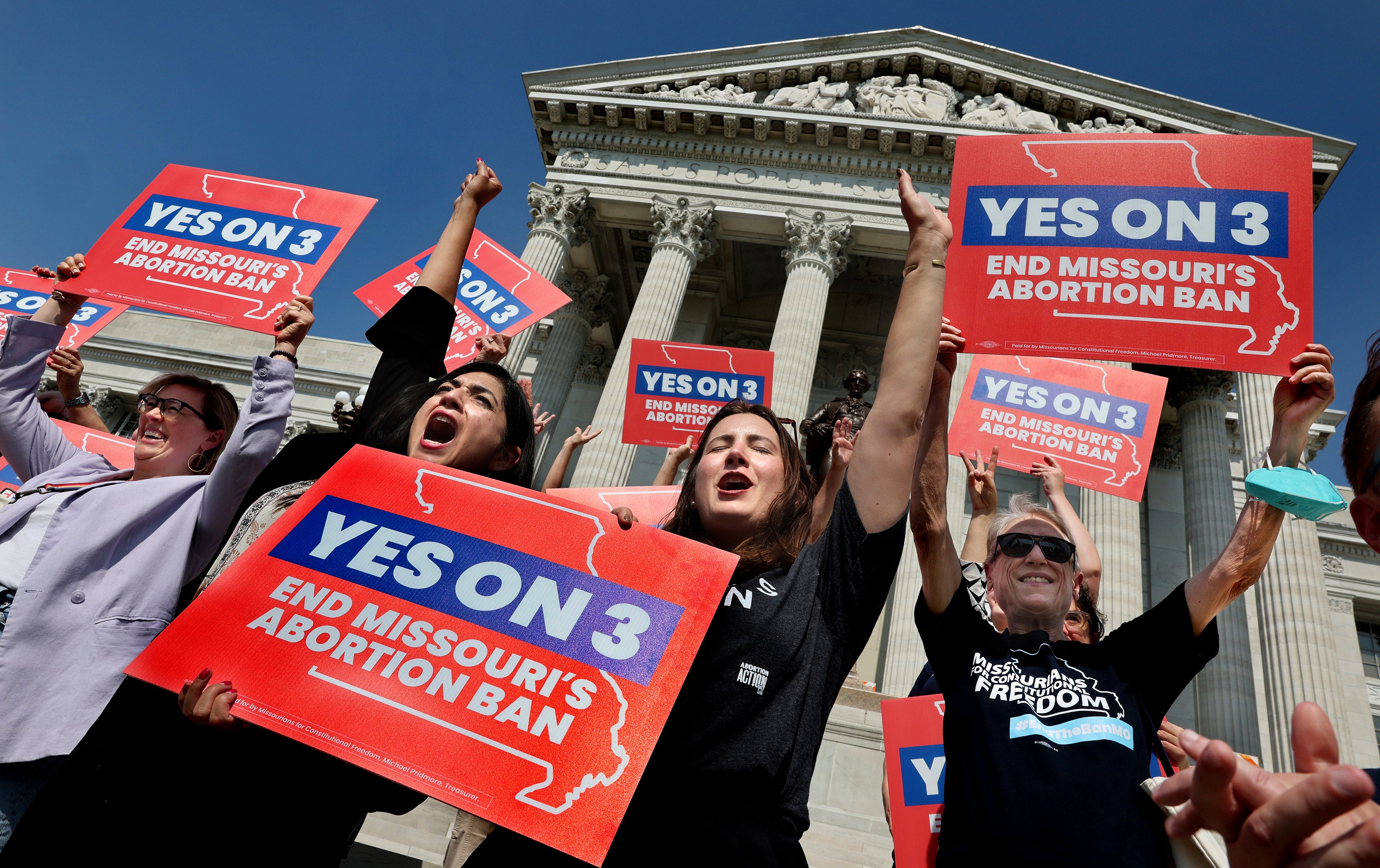Missouri’s GOP attorney general plans to enforce some abortion restrictions despite new amendment
Missouri's Republican attorney general says he still considers it illegal to provide abortions after fetal viability, despite a newly approved state abortion rights amendment
Your support helps us to tell the story
From reproductive rights to climate change to Big Tech, The Independent is on the ground when the story is developing. Whether it's investigating the financials of Elon Musk's pro-Trump PAC or producing our latest documentary, 'The A Word', which shines a light on the American women fighting for reproductive rights, we know how important it is to parse out the facts from the messaging.
At such a critical moment in US history, we need reporters on the ground. Your donation allows us to keep sending journalists to speak to both sides of the story.
The Independent is trusted by Americans across the entire political spectrum. And unlike many other quality news outlets, we choose not to lock Americans out of our reporting and analysis with paywalls. We believe quality journalism should be available to everyone, paid for by those who can afford it.
Your support makes all the difference.Missouri's Republican attorney general has pledged to enforce some laws restricting abortion despite a new constitutional amendment widely expected to undo the state's near-total ban on the procedure.
In an opinion requested by incoming GOP governor Mike Kehoe, Attorney General Andrew Bailey wrote that his office will continue enforcing a ban on abortion after fetal viability.
There is an exception carved out in the amendment for cases in which a health care provider deems an abortion necessary to “protect the life or physical or mental health of the pregnant person.”
“Under the express terms of the amendment, the government may still protect innocent life after viability,” Bailey wrote. “The statutes thus remain generally enforceable after viability.”
Bailey said his office also will continue to honor a Missouri law requiring parental permission for minors to receive abortions.
Bailey's opinion comes after voters approved a ballot measure this month that enshrines abortion rights in the state constitution while allowing lawmakers to restrict or ban it after fetal viability.
The term “viability” is used by health care providers to describe whether a pregnancy is expected to continue developing normally or whether a fetus might survive outside the uterus. Though there’s no defined time frame, doctors say it is sometime after the 21st week of pregnancy.

The measure’s passage was one of seven victories for abortion rights advocates this past election, while Florida, Nebraska and South Dakota defeated similar constitutional amendments, leaving bans in place.
Abortion rights amendments also passed in Arizona, Colorado, Maryland and Montana. Nevada voters also approved an amendment, but they’ll need to pass it again it 2026 for it to take effect. Another that bans discrimination on the basis of “pregnancy outcomes” prevailed in New York.
The Missouri amendment, which is to take effect Dec. 5, does not specifically override any state laws. Instead the measure leaves it to advocates to ask courts to knock down bans that they believe would now be unconstitutional.
Planned Parenthood affiliates that operate in Missouri sued the day after the election to invalidate the state’s abortion ban and several laws that regulate the care. That lawsuit is still pending.
Allowing restrictions on abortions after viability was a sticking point for some abortion rights supporters in Missouri.
Advocates had worried that failing to include such limits would sink their chances of passing abortion protections. But others cautioned against giving the Republican-controlled Legislature the power to enact regulations that could effectively end access.
